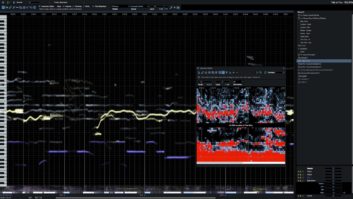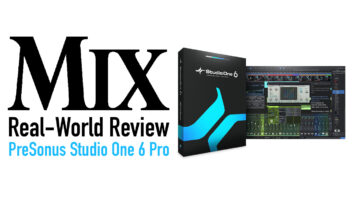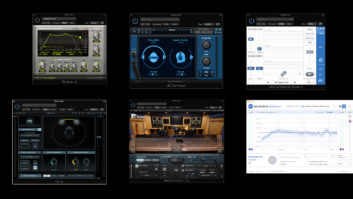Whether you’re a musician, producer or engineer, the odds are that you spend some time sharing audio files with your colleagues online. I know I certainly do—mixes, reference tracks and individual tracks for projects I’m working on with others.
There are plenty of options for file sharing. Emailing an MP3 is the simplest way, but besides the obvious quality limitations, even compressed files can be too large to email. If you have to send multiple files, it can be really tiresome. Not to mention, security.
I’m a Dropbox user and find it to be incredibly convenient for file sharing. If you’re just sending files to someone, they don’t need to be a Dropbox user, which is handy. If you’re going to be trading files back and forth, it’s better that all the collaborators (you can share with more than one person) have a Dropbox account. You can get a free account, with a 2GB limit. Overall, Dropbox is an excellent service, but it’s designed for general-purpose file sharing, and other than its music player, it has no features specifically designed for musicians.
If you’re working in Pro Tools and collaborating with other Pro Tools users, consider Avid Cloud Collaboration, a paid service that offers a broad feature set for shared projects. Another company, Gobbler, which has been providing cloud-based services for musicians for a number of years, is in the middle of beta-testing its own cloud-based collaboration service, but I don’t have any details beyond that at the moment.
Read more Mix Blog Studio: What’s in Your Archive?
Soundcloud is another way to go. It also offers free accounts, or more robust paid ones. Once you join up, you can upload files, designate them as private, and then share them via a “Secret Link.” It’s a little tedious because you have to upload and name the files and create the Secret Links. The receiver doesn’t need Soundcloud to listen, which is cool.
A couple of other music-specific file-sharing services are less well known but quite powerful. One is Swan Audio, which is currently a free service that lets you send files of up to 2GB. You have to join to send files, but it’s only a matter of entering an email address and password. With each file you send, you can choose if the recipients can play it, download it, or both.
Because it’s a browser-based player, anyone who gets the file can listen immediately on any device, and the sound quality is quite good. What’s really cool is if you have a bunch of files to send (as long as they don’t add up to more than 2GB), you can Zip them and specify “Play Only,” and your recipient (or recipients), will receive a link for a browser-based player that can play all the songs individually without needing to be unzipped. You could also choose Download and Play with a Zipped file. Files on Swan Audio stay available for a week and then are removed.
Yet another dedicated music-production-based file-sharing service called Bounce Boss just launched. It, too, offers browser-based file sharing, along with a lot more.
Bounce Boss is based in the UK and is a paid service (it offers a limited one-month free trial), with several different subscription plans available, starting with a 4GB plan for about USD $6.50, and going up from there both in price and how many GB of file space you get.
Only one person in the collaboration needs to be a paid member, everyone else can participate in the collaboration for free. Bounce Boss helps organize files by type (it offers categories for mixes, stems, versions and reference tracks), and provides a level-matching feature for comparing files to each other more accurately. It also lets you include a looped section with a file that you send so that your collaborators can jump to a specific spot in a song that you want them to hear.
It appears to be a really well-thought-out system, and its features were based on the feedback from 300 producers the company polled. I haven’t had a chance to try it out in a real project yet, but it looks promising.
Without question, there are plenty of options for online music-file sharing to go way beyond emailing MP3s, and they appear to be getting better and better.







